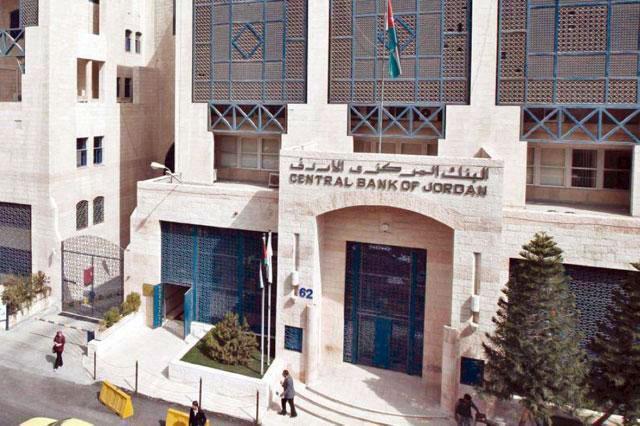You are here
Jordan banking system capable of withstanding coronavirus crisis — CBJ governor
By JT - Apr 19,2020 - Last updated at Apr 19,2020

The Central Bank of Jordan has a wide set of tools at its disposal to tackle emergency situations and has not yet utilised all its available mechanisms, according to the governor of the CBJ (File photo)
AMMAN — Jordan’s banking system is “strong and resilient” to overcome the repercussions of the coronavirus crisis, Central Bank of Jordan (CBJ) Governor Ziad Fariz said on Sunday.
During a virtual symposium organised by the Jordan Strategy Forum (JSF), Fariz said that the CBJ has a wide set of tools at its disposal to tackle emergency situations, noting that the bank has not yet utilised all its available mechanisms, according to a JSF statement.
The governor added that Jordan has multiple options for receiving additional grants and soft loans from the World Bank (WB) and the International Monetary Fund (IMF), noting that the Kingdom can receive an additional loan of $400 million from the IMF and $140 million out of $1.3 billion as funding granted under the Extended Fund Facility (EFF) programme.
Fariz said that the IMF “understands” Jordan’s current circumstances regarding the COVID-19 crisis.
The CBJ governor also noted the availability of a Japanese grant worth $100 million.
The CBJ’s decision to delay the disbursement of bank dividends has allowed local banks to gain additional liquidity that can be used later in the market through offering facilitations for banks, Fariz said.
The governor also reviewed the CBJ’s procedures to alleviate the impact of the pandemic crisis on individuals and economic sectors, which include lowering the interest rates on monetary policy tools by 150 basis points in March and allowing banks to delay payments and loan interests on individuals and companies.
He added that the procedures will also contribute to providing monetary liquidity for loan purposes with a volume of JD500 million and reducing the compulsory reserve on deposits from 7 to 5 per cent to provide some JD550 million, as well as launching the national programme to finance small- and medium-sized enterprises at a value of JD500 million with an 85 per cent guarantee by the Jordan Loan Guarantee Corporation.
Fariz said that the drop in oil prices has saved the Treasury at least JD1 billion, equalling 50 per cent of the usual bill for energy imports.
Related Articles
AMMAN — Industrial sector representatives on Sunday discussed with Central Bank of Jordan (CBJ) Governor Ziad Fariz the challenges and obsta
AMMAN — Central Bank of Jordan (CBJ) Governor Ziad Fariz on Sunday said Jordan has been able to avoid many economic risks, thanks to the CBJ
AMMAN — His Majesty King Abdullah on Tuesday commended the measures taken by the Central Bank of Jordan (CBJ) to mitigate the impact o


















